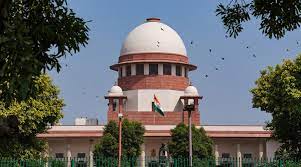
Rekha Sharad Ushir v. Saptashrungi Mahila Nagari Sahkari Patsanstha Ltd.
Date of the order:-26.03.2025
1. Core Issue
The Supreme Court examined whether a complaint under Section 138 of the Negotiable Instruments Act (NI Act) (dishonor of cheque) could proceed when the complainant suppressed material facts and documents during the filing of the complaint and oath statement under Section 200 CrPC. The Court emphasized the duty of magistrates to scrutinize complaints rigorously to prevent abuse of legal process.
2. Key Observations by the Supreme Court
A. Suppression of Material Facts
The respondent (complainant) deliberately withheld two critical letters (dated 28 Nov 2016 and 13 Dec 2016) from the appellant (accused), which: a) Demanded loan documents to verify the debt. b)Highlighted non-cooperation by the respondent. c) The complainant falsely claimed in court that no reply was received from the accused, despite these letters.
“A litigant who suppresses material facts cannot seek justice. Such cases must be thrown out.” (citing S.P. Chengalvaraya Naidu v. Jagannath).
B. Magistrate’s Duty Under Section 200 CrPC
I) Not a mere formality: The magistrate must cross-examine the complainant to verify truthfulness.
II) Application of mind: Before issuing process (under Section 204 CrPC), the magistrate must ensure:
III) The complaint discloses a prima facie case.
IV) No material suppression exists.
Failure in this case: The magistrate ignored the omission of key documents, leading to an erroneous process.
C. Abuse of Process of Law
The respondent misused the second security cheque (after the first loan was already repaid) to initiate vexatious litigation.
Critical lapse: The complainant did not provide loan documents despite repeated requests, denying the accused a fair chance to rebut the claim.
Court’s Rebuke:
“Setting criminal law in motion by suppressing facts is an abuse of process.” (from the Judgment).
D. Presumption Under Section 139 NI Act
The respondent argued that Section 139 (presumption of debt) favored them, but the Court clarified:
Presumption is rebuttable: The accused must get a fair opportunity to challenge it.
Suppression of facts negates this presumption if it prevents the accused from defending properly.
E. High Court’s Error
The Bombay High Court refused to quash the complaint, stating “issues can be decided at trial.”
Supreme Court ’s Correction:
- Trials cannot proceed if the complaint itself is tainted by suppression.
- Quashing at the threshold is necessary to prevent harassment.
3. Broader Legal Principles Established
- Duty of Disclosure: Complainants must place all material facts before the court. Suppression warrants dismissal.
- Magistrate’s Vigilance: Courts must actively interrogate complaints under Section 200 CrPC to filter frivolous cases.
- Fairness in NI Act Cases:
a) Creditors cannot withhold documents and then claim presumption of debt.
b) Access to evidence is a right, not a privilege.
Abuse of Process: Using courts for ulterior motives (e.g., pressuring repayment via false cases) will be struck down.
4. Critical Takeaways
For Magistrates: Scrutinize Section 200 statements thoroughly. Ask probing questions.
For Complainants: Full disclosure is mandatory. Hiding facts risks case dismissal.
For Accused: Seek quashing at the earliest if suppression is evident.
For Lawyers: Advise clients against strategic omissions—it backfires.
5. Conclusion
The judgment reinforces that:
- Truthfulness is non-negotiable in litigation.
- Courts are not tools for coercion—especially in cheque bounce cases.
- Procedural safeguards (like Section 200 CrPC) exist to protect the innocent.
By quashing the complaint, the SC sent a strong message: “Come to court with clean hands, or not at all.”
Edited & Reviewed by Neeraj Gogia Advocate
#BankingLaw #DebtRecovery #LoanDisputes #FinancialLitigation #CooperativeBanks #LawyersOfIndia #JudicialReform #CriminalLaw #TrialProcedure #MagisterialDuties#KnowYourRights #ConsumerProtection #LegalAwareness #StopFakeCases #JusticeForAll#Section138NIAct #ChequeBounceCase #CrPC200 #AbuseOfProcess #MaterialSuppression #JudicialScrutiny
